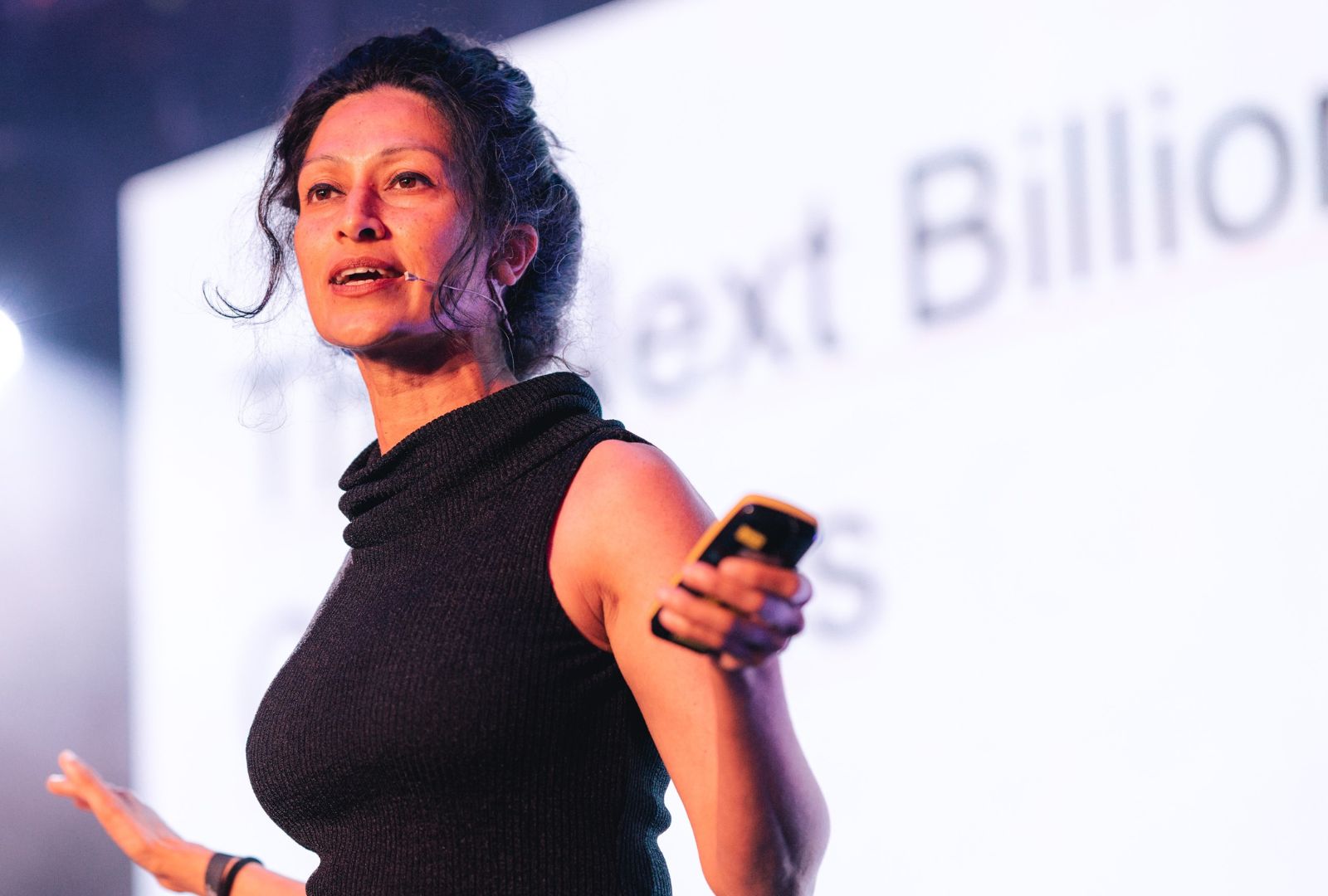Payal Arora (ITS ‘09) is a Professor of Inclusive AI Cultures at the Department of Media and Cultural Studies at Utrecht University, based in the Netherlands. With a career spanning two decades, she co-founded the Inclusive AI Lab, focusing on debiasing technology, and FemLab, which explores the feminist futures of work. Arora's research centers on the ways young people, specifically from marginalized communities in the Global South, engage with digital tools in their everyday lives. Particularly, her work examines how youth use these technologies not only for learning but for creating livelihoods, exploring identity, and navigating personal struggles like mental health. Arora’s overarching goal is to shift the narrative from tech’s risks and harms to its potential for empowerment, particularly among those who have historically been excluded from the digital revolution.
Academic Foundations at TC
Arora’s journey into the field began at Teachers College, Columbia University, where she completed her dissertation in 2009. Her research on informal learning practices among youth in rural India marked a turning point in her career. At the time, broadband was just reaching parts of Uttarakhand, India, and she was particularly drawn to addressing the excitement surrounding community-based digital education. This work eventually led to her first book, Dot Com Mantra: Social Computing in the Central Himalayas, which explores how rural youth in the region engage with digital technologies for informal learning, community-building, and self-expression, while critically examining the broader social and cultural implications of technology use in the Global South.
Arora credits her time at TC for shaping her interdisciplinary approach. Her advisor, Professor Hervé Varenne, guided her toward studying everyday communication and social learning practices beyond traditional classrooms. She was also influenced by Professor Gita Steiner-Khamsi’s comparative policy work, which continues to inform her approach to global policy and educational initiatives. Through her work on the Kellogg project with Professor JoAnne Kleifgen and Professor Charles Kinzer and spearheaded by Dr. Karen Kaun, Arora gained practical experience working with immigrant youth in New York City, shaping her focus on technology’s role in education at the ground level.
“I loved working with PhD students from different faculties at Columbia University. This experience embedded this deep love for interdisciplinary and cross-disciplinary work that stays with me today. Of course, at the end of the day, it’s the intense conversations with other doctoral students that nurture your mind over food and drink. I was fortunate to have built lifelong close friendships with such students, especially with Dr. Karen Kaun, Dr. Katalin Kabat Ryan and Dr. Leigh Llewellyn Graham, who keep me on my toes with their sharp and incisive observations about technology, social life, and learning. In some sense, these lifelong relationships enable lifelong learning.”
Global South, Technology Diffusion, and CIE
As Arora’s research shifted toward the Global South, she began to challenge the dominant narratives around tech diffusion, particularly in education. Traditional narratives often frame the Global South as a recipient of Western technologies, but Arora's research demonstrates that many of the countries leading in mobile internet access are now in the Global South. In her book, The Next Billion Users, she confronts the double standards in how youth learning is perceived in the Global North versus the Global South. In the North, education is viewed as a broad and holistic pursuit encompassing mental health, sex education, wellbeing, creativity, and play. In contrast, youth in the Global South are often framed as instrumental and utility-driven, with education depicted as a means to escape poverty by securing better jobs, healthcare, and other essentials. However, drawing on two decades of ethnographic research among refugees in Brazil, rural communities in Namibia, and urban slums in Delhi, Arora challenges this narrow framing. Her work demonstrates that youth in the Global South, like their counterparts worldwide, engage with digital tools for romance, entertainment, creativity, and self-actualization.
CIES 2025: Rethinking AI and Education
For her keynote at the 2025 CIES conference, Arora will discuss the role of educational sciences in shaping AI tools. Rather than focusing solely on “training” AI to process data, she proposes that we shift our mindset to “teaching” AI about the world. She argues that involving educators in the AI development process could help mitigate biases and ensure that AI learns from a more diverse set of cultural contexts. This conversation is especially relevant in the current moment, as the influence of AI on education and society continues to grow.
From Pessimism to Promise
In her latest book, From Pessimism to Promise, Arora confronts the pessimistic narratives around AI, especially in the West, where surveys show deep concerns about AI and its future implications. Arora points out that, in contrast, youth in the Global South tend to be more optimistic, seeing AI as a tool for self-empowerment and innovation despite its risks. She argues that this optimism stems from the lived experiences of youth in these regions, where digital tools open up new possibilities for entrepreneurship, creativity, and social mobility. This theme has the power to resonate with CIES scholars, who have a deep understanding of the Global South’s evolving role in shaping the future of education.
Advice for Current Students and Scholars
Arora’s advice to current students and scholars interested in technology and education is simple yet powerful – broaden your understanding of education beyond formal classrooms and recognize the importance of everyday learning. She encourages a mindset shift, urging scholars to treat technology not as a tool to be controlled but as a learner that needs to be taught. By embracing interdisciplinary approaches, Arora believes we can better address global challenges, from the climate crisis to the future of democracy, through the power of collaborative learning and cross-cultural innovation.
As Arora prepares to share her insights at CIES 2025, her message is clear: the future of education—and technology’s role in it—is shaped by those who understand the diverse ways people around the world learn, adapt, and create.
